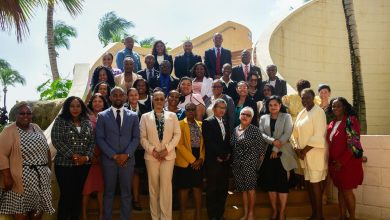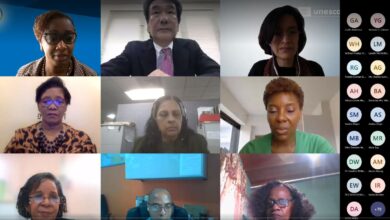|
COHSOD is one of three main Councils of the Community, together with the Council for Trade and Economic Development (COTED), and the Council for Foreign and Community Relations, (COFCOR), which are responsible for discussing and making recommendations on critical issues related to trade, foreign relations and social policies. The decisions from these Councils are taken to the Conference of Heads of Government through the Community Council of Ministers. In many cases the Councils receive various mandates from Heads of Government. The business of CARICOM is therefore carried out as an interlocking network of which, for example, the regional and international agencies, the donor community, NGOs and national governments in particular, play a critical role. CARICOM as a network is therefore a rather complex entity. Hence, in some cases movement toward achieving its stated policies can be quite slow. This is the general context in which the Region has set as its flagship the movement toward a Single Market and a Single Economy (CSME). Our Council, as well as the others, have a responsibility to ensure that we contribute toward the acceleration of this process which is so important to our Region as a whole. The reason is that by 2005, the Americas of which we are a part, would have established the Free Trade Area of the Americas which is in addition to the overall economic changes over which the World Trade Organisation presides. Consequently, the world system today is dramatically different from it was when this Community was inaugurated by the Treaty of Chaguaramas 30 years ago. Then there was the Cold War and our Region played a vital role in the Non-Aligned Movement which, in many ways, held a balance of power of sorts in the governance process of this World. Then also, the international system at least honoured commitments to providing concessions to small and vulnerable societies such as ours. Now there is virtually a unilateralist system which has moved into a mold of neoliberalism, with resulting complex regulations, obliteration of concessions and other exacerbating inequalities which further increase the unevenness of the playing field between the developed and the developing countries. This has been fully demonstrated in the devastation of some economies in the Caribbean, for example Dominica, which has been severely affected by the withdrawal of special subsidies on its banana industry. Another example of the uneven playing field is the cause and effect of the recent War on Iraq which has all but minimalised the once dominant role of the United Nations in the procurement of peace and security. It is this context in which we as CARICOM states exist that makes it ever more necessary for the CSME to be a reality. While at the heart of the current progress toward the CSME are the conditions for the free movement of goods, services and investments, the nerve center of the CSME is really that which focuses on making Caribbean people in reality share that common bond and a pervasive regional spirit. Without this ethic or philosophy, the CSME would otherwise be meaningless. It would be so rendered, unless Member States honour their obligations to expedite the process whereby regional travel is facilitated and systematised; by which the free movement of people and skills can operate on a impartial rather than an ad hoc or discriminatory manner; by which we embark more specifically on accreditation and standardisation of our procedures so that the regional labour force, as well as investors, can benefit from a single economic space. These are actions urgently required and the time is now for implementation rather than mere posturing. We have to find creative ways to find solutions to our problems rather than to have them defined for us and for us to mainly be reactive. At this Meeting we will be focusing on some of these challenges, especially as they relate to Culture, Youth and Sport. But we will also be dealing with some other issues such as the pressing need to move ahead with the accreditation procedures for our medical and other professions. We will also be dealing with one of the models of functional cooperation for which the Caribbean has become famous, i.e., our regional approach to accelerating the Region’s response to HIV/AIDS in the Caribbean. In addition, this Meeting will identify the rapid strides that are being coordinated by this Council as it seeks to establish a firmer basis by wish civil society can participate meaningfully in the Organs of the Community and how, in collaboration with other agencies, the CARICOM Secretariat is working to achieve the millennium development goals, especially with respect to the rights of the child.
At this Meeting we have an opportunity to truly advance the agenda of meeting the challenges of human development through Culture, Youth and Sport. On behalf of CARICOM, we thank you all for attending this COHSOD and look forward to your valuable contributions. |
|
|
|
Press ReleasesSpeeches





